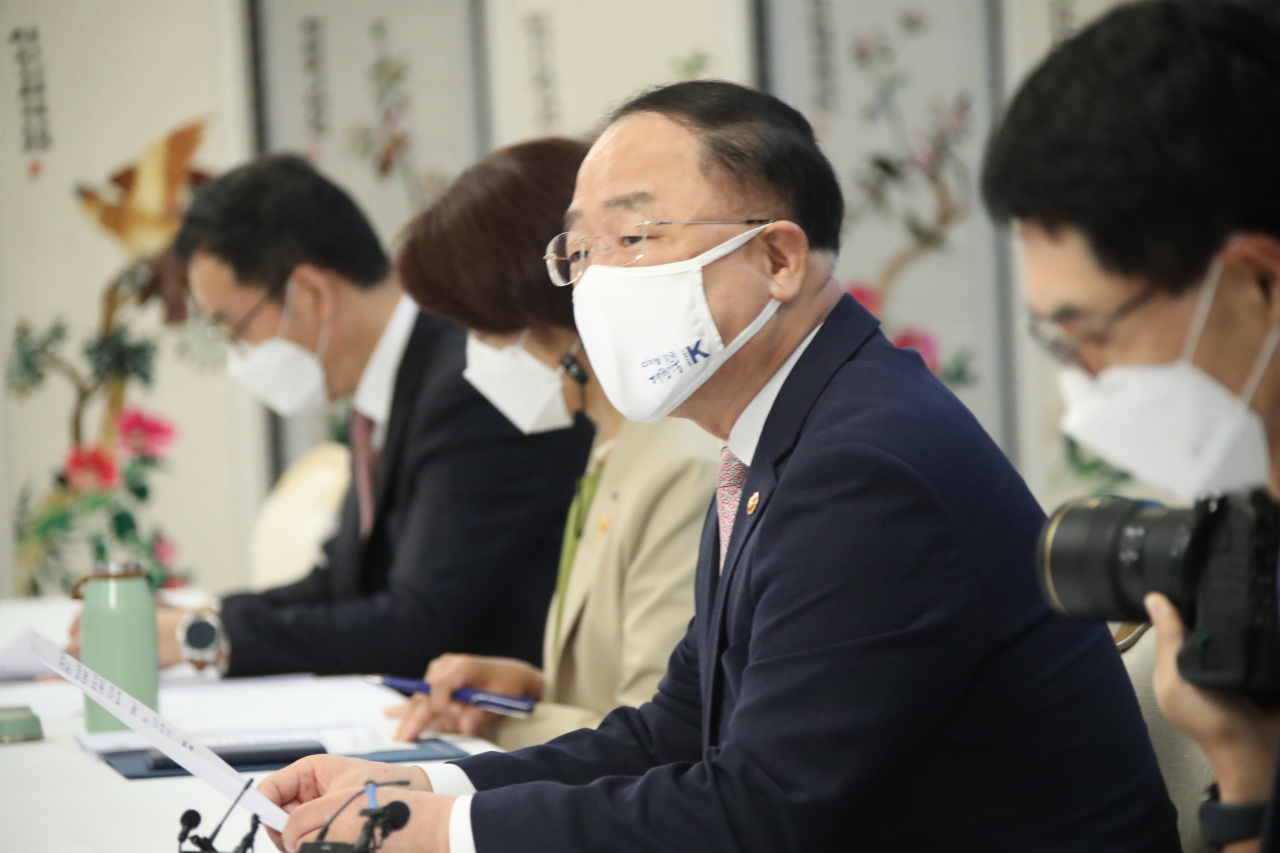Fiscal chief promises blockbuster R&Ds funding to keep battery leadership
By Park Han-naPublished : July 1, 2021 - 16:11

South Korea will carry out massive public-private R&D collaboration projects to capture the biggest share of the global rechargeable battery market by 2030, the country’s top economic policymaker said Thursday.
Finance Minister Hong Nam-ki said the government will soon announce detailed strategic plans to make the country the largest producer of next-generation rechargeable batteries to stay ahead of global rivals.
In 2020, Korean rechargeable battery makers topped the world market share with 44 percent, followed by China and Japan, which had 33 percent and 17.4 percent, respectively.
In the small-sized lithium secondary battery market, Asia’s fourth-largest economy has maintained its top position for the last 10 years. But competition for the mid-to-large battery market has gotten fiercer with an increasing number of global players joining the race.
“To sharpen the competitive edge, large-scale R&D programs will be launched on the development of technologies involving materials, parts and equipment for next-generation secondary batteries,” he said during an innovative growth strategy meeting.
To form a business ecosystem, the government will nurture more than 1,100 professionals per year and establish a stable supply chain such as by securing raw materials.
It will also explore a variety of ways to support the creation of a market for used rechargeable batteries and boost demand by discovering new public and private markets.
The secondary battery sector is one of the key national strategic industries designated by the government, along with semiconductors and vaccines.
On Monday, the Finance Ministry said tax incentives for research and development and facility investments will be granted to the sectors. The ministry unveiled them as part of the country’s direction of economic policy for the second half of this year to achieve complete economic recovery and a major structural transformation into a leading economy.
The minister also stressed the need to build a tailored system to foster development of software medical devices as the existing system has dragged progress down. To expedite development, the minister called for adoption of new technologies like artificial intelligence and big data.
“The domestic medical device regulatory system is hardware-oriented. It is urgent to establish a system suitable for software medical devices and to expand the support system,” he said.
Regulations on clinical testing, approval reviews, facility and quality control standards as well as distribution and sales management systems will be revamped.
For the “K-Semiconductor Strategy,” which aims to build the world’s biggest chipmaking base over the next decade, a preliminary feasibility study will be conducted in the fourth quarter for the construction of a mass-production test bed and a high-tech chip packaging project.
“The construction of the Yongin, Gyeonggi Province, semiconductor cluster will start within this year and the next-generation semiconductor related budget will be secured for next year according to plans,” he said.












![[Today’s K-pop] BTS pop-up event to come to Seoul](http://res.heraldm.com/phpwas/restmb_idxmake.php?idx=644&simg=/content/image/2024/04/17/20240417050734_0.jpg&u=)





![[KH Explains] Hyundai's full hybrid edge to pay off amid slow transition to pure EVs](http://res.heraldm.com/phpwas/restmb_idxmake.php?idx=652&simg=/content/image/2024/04/18/20240418050645_0.jpg&u=20240419100350)

![[Today’s K-pop] Zico drops snippet of collaboration with Jennie](http://res.heraldm.com/phpwas/restmb_idxmake.php?idx=642&simg=/content/image/2024/04/18/20240418050702_0.jpg&u=)